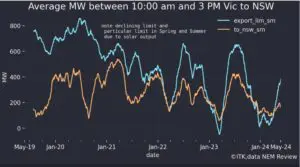A landmark UK government report has called for a thorough overhaul of economic methods for valuing natural assets, arguing among other things that gross domestic product is a short-term metric that allows for the potentially catastrophic exploitation of nature.
The 600-page report, by Cambridge University economist Professor Partha Dasgupta, argues governments should adopt an “inclusive” concept of wealth that systematically assigns a monetary value to natural assets and biodiversity, through what he calls “natural capital accounting”.
Dasgupta said measures like GDP could “mislead badly” because they emphasised the value of annual production without taking any account of the longer-term depletion of natural assets and destruction of biodiversity they cause. But he said this depletion and destruction would have severe long-term economic impacts.
“If the societal goal is to protect and promote well-being across the generations (i.e. ‘social well-being’), governments should measure inclusive wealth (societal means to those ends). Inclusive wealth is the sum of the accounting values of produced capital, human capital and natural capital,” he wrote.
The report uses mathematical modelling to find the value of natural capital and place it in a broader context of inclusive wealth. Dasgupta contrasts the conventional macroeconomics of wealth – “built on the view that human society is external to nature” – with the “economics of biodiversity”, which accepts humans are embedded in nature.
The report is similar in theme and length to the 2006 Stern Review on the economics of climate change, also commissioned by the UK government, in which economist Nicholas Stern argued climate change was “a result of the greatest market failure the world has seen”.
Stern argued that the benefits of “strong and early” mitigation efforts “far outweigh the economic costs of not acting”. The review has since become one of the most influential and oft-cited texts on the economic argument for action on climate change.
The Dasgupta Review similarly up-ends economic assumptions about biodiversity loss, a distinct but related environmental problem to climate change that is increasingly becoming a mainstream financial concern. HSBC is the highest-profile financial firm to promote the development of natural capital as an asset class, with the help of Australian green finance guru Martijn Wilder’s firm Pollination.
Prince Charles has also been heavily involved in recent pushes to put a monetary value on natural capital, forming the Natural Capital Investment Alliance with HSBC and other financial companies, and last month launching the “Terra Carta” or “Earth Charter” which urges companies to adopt a radically sustainable approach to sustainability that looks beyond just carbon emissions.
While many of the concepts in the Dasgupta Review are not new, they represent a radical departure from entrenched economic norms, and the fact they are presented in a government-commissioned review will likely give them extra weight, as with the Stern Review.
The Dasgupta Review includes an introduction by influential wildlife documentarian David Attenborough, in which he warns many of the world’s natural systems are “on the verge of breakdown”.
British prime minister Boris Johnson welcomed the findings, saying it made it “clear that protecting and enhancing nature needs more than good intentions – it requires concerted, co-ordinated action”.
“As co-host of COP26 and president of this year’s G7, we are going to make sure the natural world stays right at the top of the global agenda. And we will be leading by example here at home as we build back greener from the pandemic through my 10 point plan,” he said.
Along with new economic norms for valuing natural capital, Dasgupta said institutions needed to change to create a cultural awareness of the value of natural capital, in particular by making environmental studies a more central part of school curriculums.
As with climate change, there is a United Nations convention dedicated to biological diversity, signed by 168 nations at the 1992 Earth Summit in Rio de Janeiro, when the UN Framework Convention on Climate Change was also signed. The convention will have its fifteenth conference of the parties (COP15) later this year in China.










